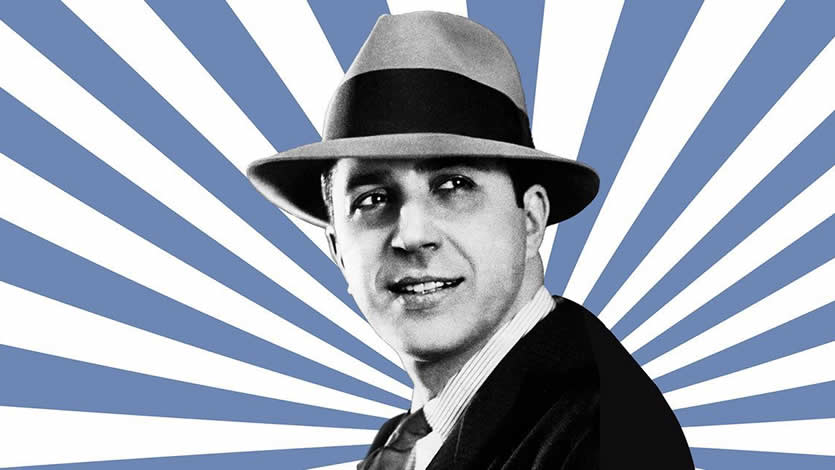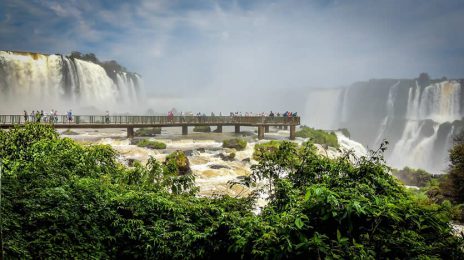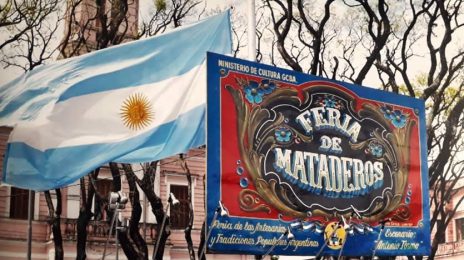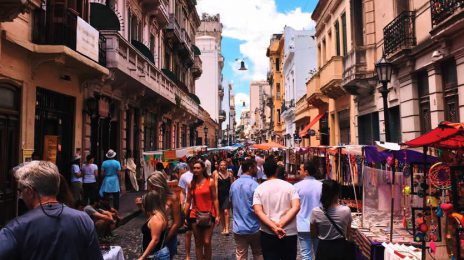Famous Argentine Personalities
Thursday February 15, 2024 | Culture | Posted by Team About Buenos Aires
Argentina, a country known for its rich cultural heritage and diverse talent, has produced a myriad of influential figures across various fields. From literature and music to sports and politics, these individuals have left an indelible mark on the world. Let’s take a closer look at some of the most well-known and famous Argentine personalities.
## 1. Diego Maradona
Diego Maradona, born on October 30, 1960, in Lanus, Buenos Aires, Argentina, was an iconic professional football player widely regarded as one of the greatest in the history of the sport. Known for his exceptional ball control, dribbling skills, and playmaking abilities, Maradona led club teams to championships in Argentina, Italy, and Spain. He achieved legendary status as a member of the Argentine national team that won the 1986 World Cup, during which he scored two of the most famous goals in the history of the tournament. His first goal in the quarter-final against England, known as the “Hand of God,” and his second, often referred to as the “Goal of the Century,” showcased his extraordinary talent and left an indelible mark on the sport. Maradona’s impact extended beyond the football pitch, as he became a cultural and social icon, particularly in his native Argentina and Naples, Italy, where he played for Napoli. He passed away on November 25, 2020, in Tigre, Buenos Aires, at the age of 60.

## 2. Lionel Messi
Lionel Messi, born on June 24, 1987, in Rosario, Argentina, is another Argentine football legend. Widely considered one of the greatest footballers of all time, Messi has achieved numerous records and awards, including multiple FIFA Ballon d’Or titles. Known for his remarkable dribbling and goal-scoring abilities, Messi has enjoyed a successful career with FC Barcelona and the Argentine national team. His humble demeanor and philanthropic work have also endeared him to fans around the world.
## 3. Eva Perón
María Eva Duarte de Perón, commonly known as Eva Perón or Evita, was an influential political figure and actress in Argentina. Born on May 7, 1919, in Los Toldos, Argentina, she became the First Lady of Argentina when her husband, Juan Perón, was elected as the President. Evita was a prominent advocate for labor rights and women’s suffrage, and she established the Eva Perón Foundation, which provided aid to the poor. Her legacy continues to resonate in Argentine politics and culture, and she remains a polarizing and iconic figure in the country’s history.
## 4. Jorge Luis Borges
Jorge Francisco Isidoro Luis Borges, known as Jorge Luis Borges, was an Argentine short-story writer, essayist, poet, and translator. Born on August 24, 1899, in Buenos Aires, Borges is considered one of the most significant literary figures of the 20th century. His works, such as “Ficciones” and “El Aleph,” are celebrated for their imaginative and philosophical themes. Borges’s impact on literature extends beyond his written works, as he has been a major influence on magical realism and postmodern literature.
## 5. Ernesto “Che” Guevara
Ernesto “Che” Guevara, born on June 14, 1928, in Rosario, Argentina, was an Argentine Marxist revolutionary, physician, author, guerrilla leader, diplomat, and military theorist. A key figure in the Cuban Revolution, Guevara became an enduring symbol of rebellion and global counterculture. His iconic image and revolutionary ideology have made him a legendary figure in popular culture and political discourse.
## 6. Carlos Gardel
Carlos Gardel, born on December 11, 1890, in Toulouse, France, was an Argentine singer, songwriter, composer, and actor, and is perhaps the most prominent figure in the history of tango. Known for his baritone voice and the dramatic phrasing of his lyrics, Gardel’s influence on the tango genre and the global popular music scene has been profound. His songs, such as “El día que me quieras” and “Mi Buenos Aires querido,” remain timeless classics.
## 7. Mercedes Sosa
Mercedes Sosa, born on July 9, 1935, in San Miguel de Tucumán, Argentina, was an influential Argentine singer who was one of the most popular and enduring exponents of the Nueva canción movement. Known as the “Voice of the Voiceless,” Sosa’s music often addressed social and political issues, and her powerful voice and emotive performances made her a beloved figure in Latin American music. Her songs, such as “Gracias a la Vida” and “Alfonsina y el Mar,” continue to resonate with audiences around the world. Sosa was also a prominent advocate for human rights and democracy, and her activism led to her exile from Argentina during the military dictatorship in the 1970s. She returned to Argentina in the 1980s and continued to perform and record music until her death in 2009.

## 8. Adolfo Pérez Esquivel
Adolfo Pérez Esquivel, born on November 26, 1931, in Buenos Aires, Argentina, is an Argentine human rights activist, community organizer, and sculptor. A prominent advocate for nonviolent resistance and social justice, Pérez Esquivel was awarded the Nobel Peace Prize in 1980 for his efforts to promote human rights and democracy in Latin America. His work with the Servicio Paz y Justicia (Peace and Justice Service) and his commitment to nonviolent activism have made him a respected and influential figure in the global peace movement.
# 9. Jorge Mario Bergoglio (Pope Francis)
Jorge Mario Bergoglio, born on December 17, 1936, in Buenos Aires, Argentina, is the current Pope of the Catholic Church. He was elected as the 266th Pope in March 2013, becoming the first Pope from the Americas. Pope Francis is known for his humility, compassion, and commitment to social justice. He has been a vocal advocate for the poor and marginalized, and has worked to promote interfaith dialogue and environmental stewardship. His papacy has been marked by a number of significant reforms and initiatives, including efforts to combat sexual abuse within the Church and to promote greater transparency and accountability.
## 10. Queen Maxima of the Netherlands
Queen Máxima of the Netherlands, born Máxima Zorreguieta Cerruti on May 17, 1971, in Buenos Aires, Argentina, is the wife of King Willem-Alexander and the queen consort of the Netherlands. Known for her vibrant personality and dedication to various social causes, Queen Máxima has become a respected and beloved figure in Dutch society.
Máxima Zorreguieta was born into a prominent Argentine family. She studied economics at the Universidad Católica Argentina and later earned a master’s degree in finance from ESEADE, a prestigious business school in Buenos Aires. Before meeting King Willem-Alexander, she had a successful career in finance, working for various international financial institutions.
In 1999, Máxima met Willem-Alexander at the Seville Spring Fair in Spain. Their relationship quickly blossomed, and they announced their engagement in 2001. The couple’s wedding on February 2, 2002, was a grand affair, capturing the attention and hearts of the Dutch people.
As queen consort, Máxima has embraced her role with enthusiasm and commitment. She is known for her work in the fields of finance, microcredit, and social inclusion. Queen Máxima and King Willem-Alexander are the parents of three daughters: Princess Catharina-Amalia, Princess Alexia, and Princess Ariane.
Quino:
Joaquín Salvador Lavado, known as Quino, was born in Guaymallén, Argentina, in 1932. A renowned humorist and cartoonist, he gained fame in Latin America and parts of Europe for his highly successful comic strip, Mafalda. Originally published between 1964 and 1973, Mafalda was translated into more than 30 languages. Infused with cynical humor and political messages critiquing society, the comic strip earned Quino international acclaim. In 1976, UNICEF selected Mafalda as a spokesperson for the Convention on the Rights of the Child. Quino was honored as “Cartoonist of the Year” by cartoonists worldwide in 1982, adding to the numerous recognitions and awards he received throughout his career.

Astor Piazzolla:
Astor Pantaleón Piazzolla, born in Mar del Plata, Argentina, in 1921 and passing away in Buenos Aires in 1992, was a prominent and controversial Argentine tango composer and bandoneón player. Regarded as one of the most significant tango musicians of the second half of the 20th century, Piazzolla faced criticism from some tango traditionalists who labeled him a “tango assassin” for his innovative approach. He defended his work as “contemporary music of Buenos Aires,” and his unique tango style, blending elements of jazz and classical music, later became known as “nuevo tango.” Piazzolla’s influential career included collaborations with Carlos Gardel, assistance with the English language in Manhattan, and an acting role alongside Gardel in the film “El día que me quieras.” Some of his compositions set to the poetry of Jorge Luis Borges, and he contributed melodies to over forty films. Piazzolla is believed to have composed around 3,000 pieces and recorded approximately 500. Among his most famous and beautiful compositions are “Balada para un loco” (Ballad for a Madman) and “Adiós Nonino,” a heartfelt dedication to his father.
These famous argentine personalities a diverse array of talent and influence, and their contributions have had a lasting impact on Argentine culture and the world. From the football pitch to the literary world, their legacies continue to inspire and resonate with people around the globe.




Leave a Reply